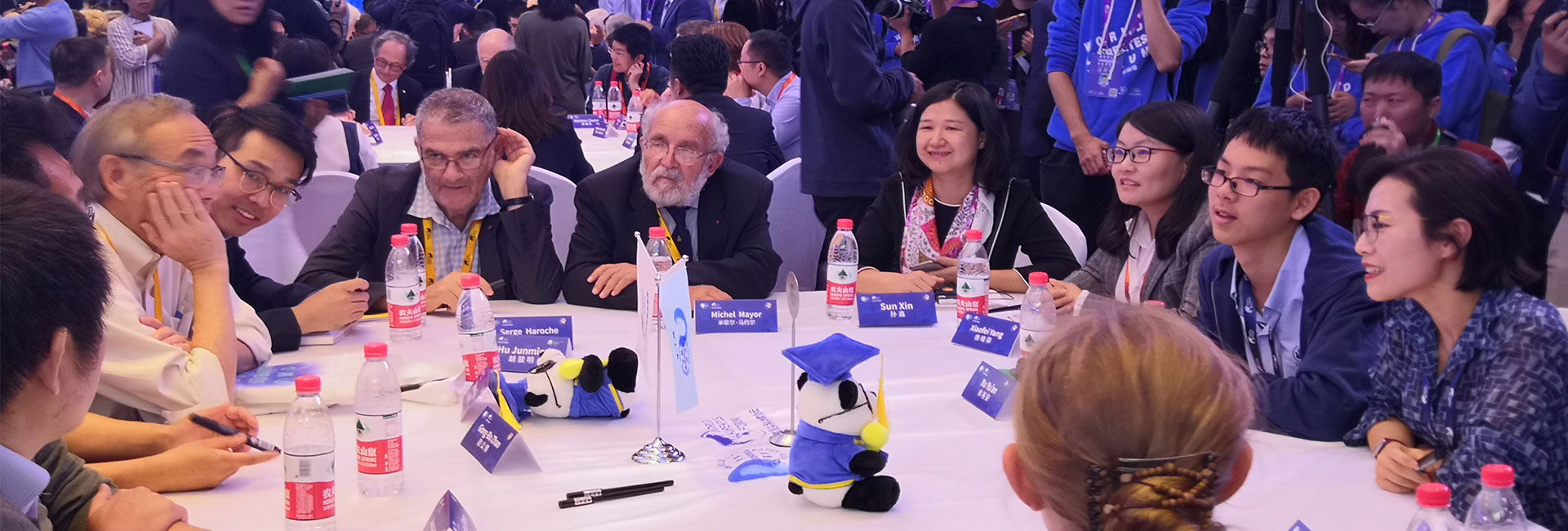
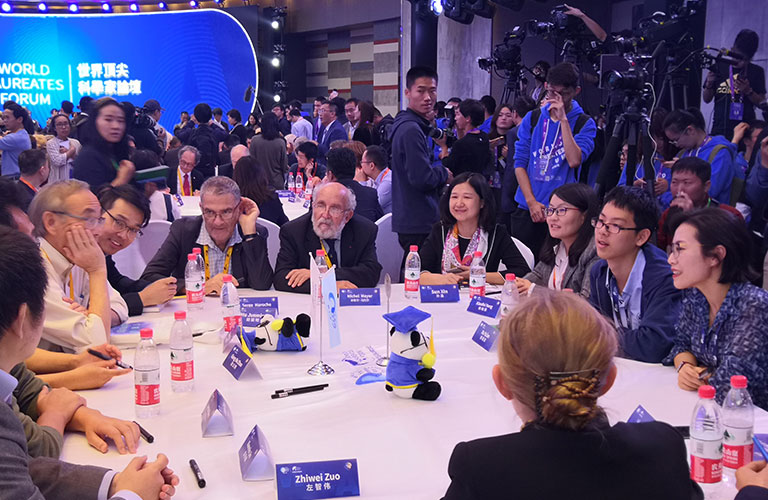

On May 13th, Dr. Katharina Kohse-Höinghaus, a dedicated professor and mentor from Bielefeld University, came to SCLS.
She participated in high school's ALEKS Math and Chemistry classes to appreciate the application of digital technology as well as observe the hands-on student experiments. Apart from that, she also conducted an open discussion with high school students to motivate them to love science and delivered a thought-provoking message on the interactive pre-university education system.
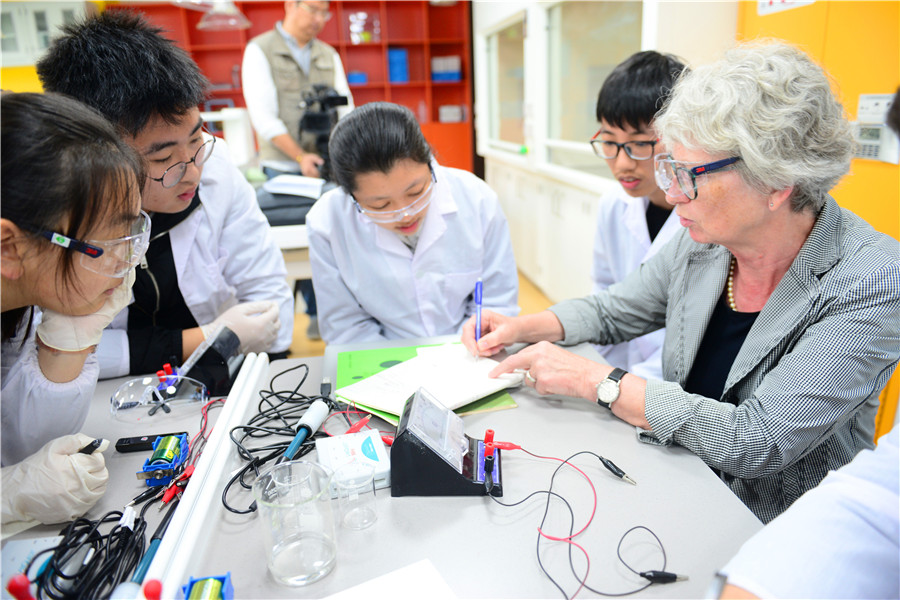
Prof. Dr. Katharina Kohse-Höinghaus
Guest lecturer of SCLS Scientist Workstation Programme
• She is a scholar of the European Academy of Sciences, German Academy of Science and Engineering.
• She is the former President of the Combustion Institute.
• She has been a professor of Physical Chemistry at Bielefeld University since 1994. Also, she is an advisory professor at Tsinghua University, University of Science and Technology of China, and Shanghai Jiao Tong University.
• She has been honoured with the People's Republic of China Friendship Award in recognition of her contribution to China's development. This award is the highest award for foreign experts who have made outstanding contributions to the country's economic and social progress. Additionally, she is the winner of the International Scientific Cooperation of the Chinese Academy of Sciences and International Science and Technology Cooperation Award of the People's Republic of China.
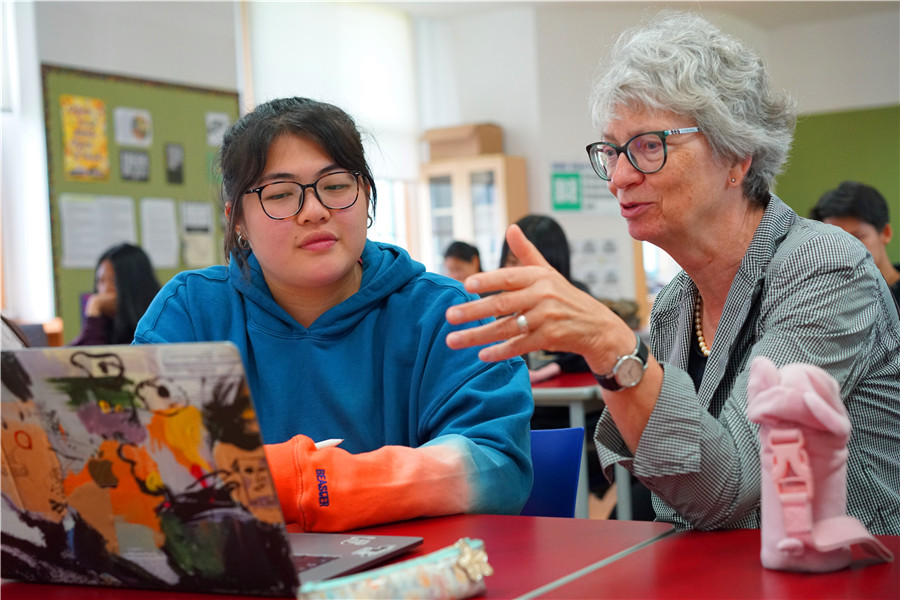
ALEKS Math Class
Efficiency Enhancement in Self-Study by Application of Digital Technology
Dr. Katharina first joined the ALEKS Math Class of the International Division. With the permission of the class teacher, Dr. Belinda Faddy, Dr. Katharina approached the students and asked detailed questions about the digital learning platform. Our students introduced this powerful system, saying this web-based system is featured with intelligent assessment, which can help them achieve their unique goals. Plus, this system can increase flexibility and facilitate more interaction. Our students tried to grasp every opportunity to ask Dr. Katharina for useful tips for mathematical problem solving.
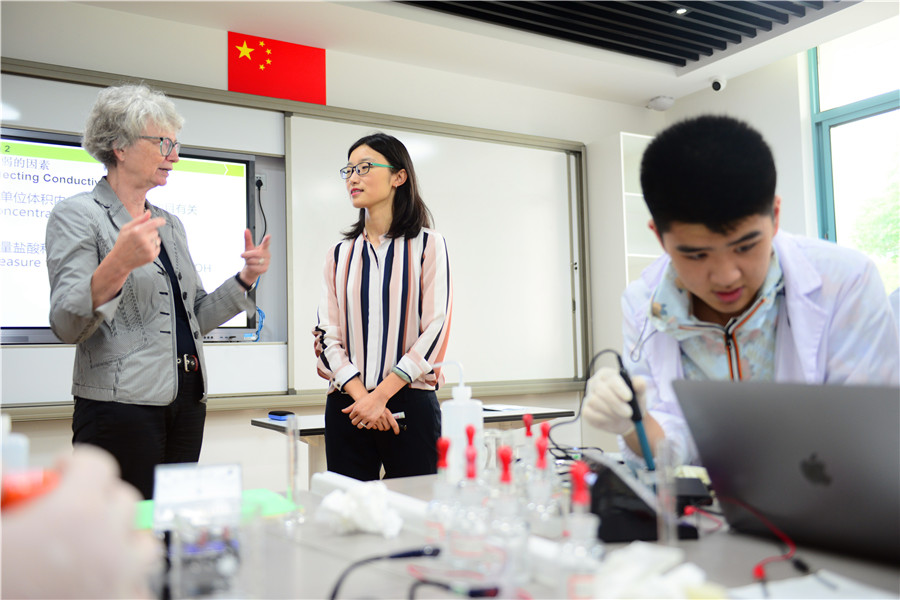
Chemistry Class
Hands-on Experiential Learning
Afterwards, Dr. Katharina partook in our Chemistry Class of Domestic Division to gain insight into a freer learning environment. Our students performed experiments on the conductivity of different electrolyte solutions, following the instructions of their chemistry teacher, Jiayi Chen. Dr. Katharina walked around to observe the students’ work and took every opportunity to interact and communicate with them. Through the close communication and interaction, our students were impressed by her swift thinking and had a better understanding of scientific rigor.
The Take-Home Questions Delivered to High School Students:
Q1: Why does ammeter’s measuring error have different impacts on weak and strong acid when testing the conductivity?
Q2: Do hydrogen ions in hydrochloric acid exist solely in the form of H+?
Q3: What happens to the distribution of hydrogen ions in the solution after connecting to the circuit?
After class, Dr. Katharina had an open discussion with high school faculties and expressed her sincere opinions on SCLS's pre-university education. She was amazed by the student performance and instructional interaction under our participative learning and teaching style. Dr. Magee, principal from high school international division, said “We highlight teacher-student interaction in order to meet students’ educational, developmental, and emotional needs. Mr. Merchant and Ms. Chen shared the same opinion, and they think that it is important to create a climate in which students are encouraged to express their ideas freely.
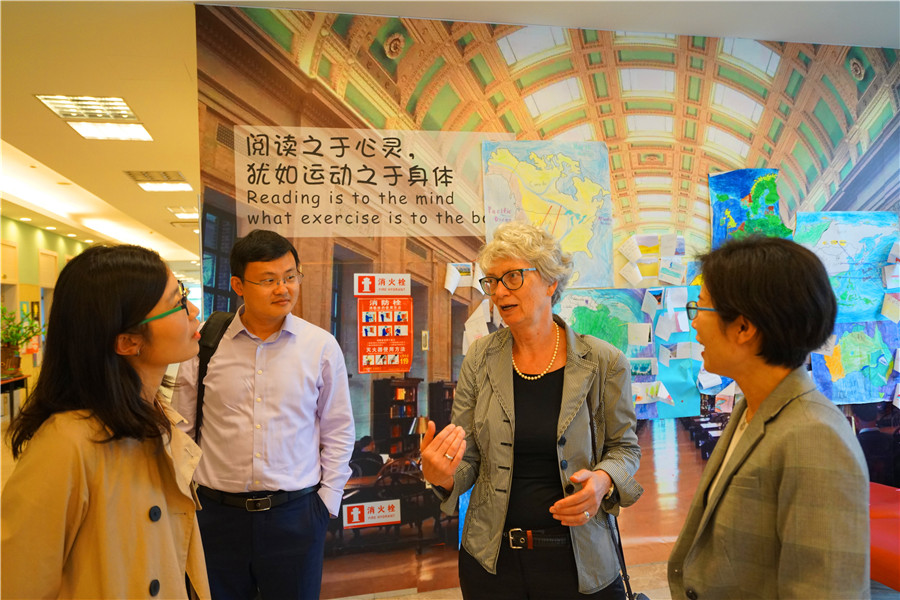
Igniting a Passion for Science
Dr. Katharina also inspired and motivated students in their learning of science through an intimate open discussion with high school students. Our students were curious about her regarding her research field, teaching experience in China, and the reason why she chose to become a scientist. She answered every question with patience. Then, she tried to make science fun and connect science to our day-to-day activities by showing the science behind the creation of cell phones and tablets in daily life.
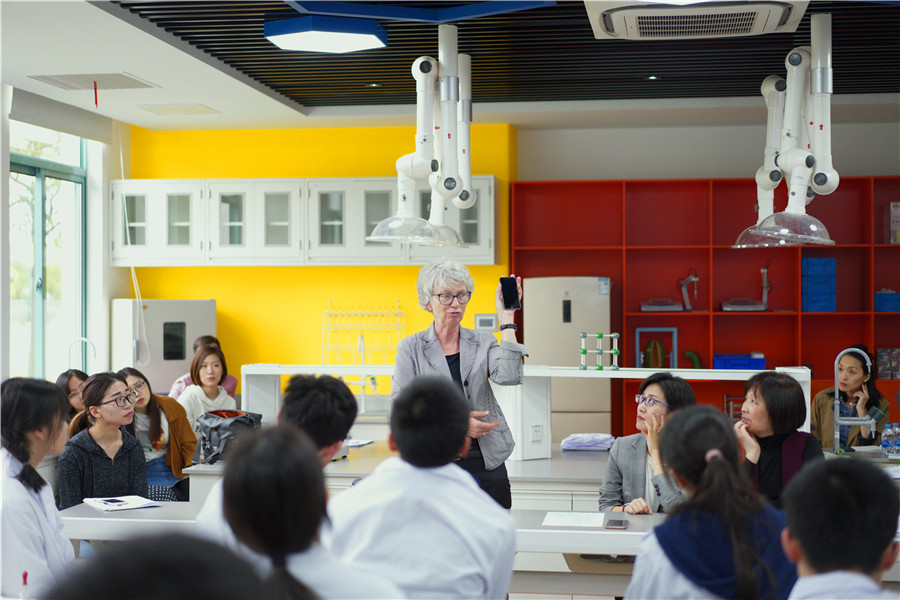
Useful Suggestions from Dr. Katharina
People that speak different languages can understand the chemistry formula easily without translation. This is the magic of chemistry language.
Women are commonly socialized to be less confident in science than boys and ought to learn language or art. It is the time to shatter this stereotype about gender. Girls need to be more confident in STEM-related tasks (science, technology, engineering and math) and be brave to pursue science and math careers if they have the interest and passion.
Despite the fact that a lot of students are going to choose economics, business, law as their major in the future, learning chemistry can help you to understand the world around you since everything you hear, see, smell, taste, and touch involves chemistry and chemicals.
What is the Scientist Workstation at SCLS?
The establishment of Scientist Workstation at SCLS aims for promoting multi-disciplinary learning and training innovative talents during the pre-university period. This program is working with scholars and experts from different industries regarding physics, mathematics, science visualization, etc.
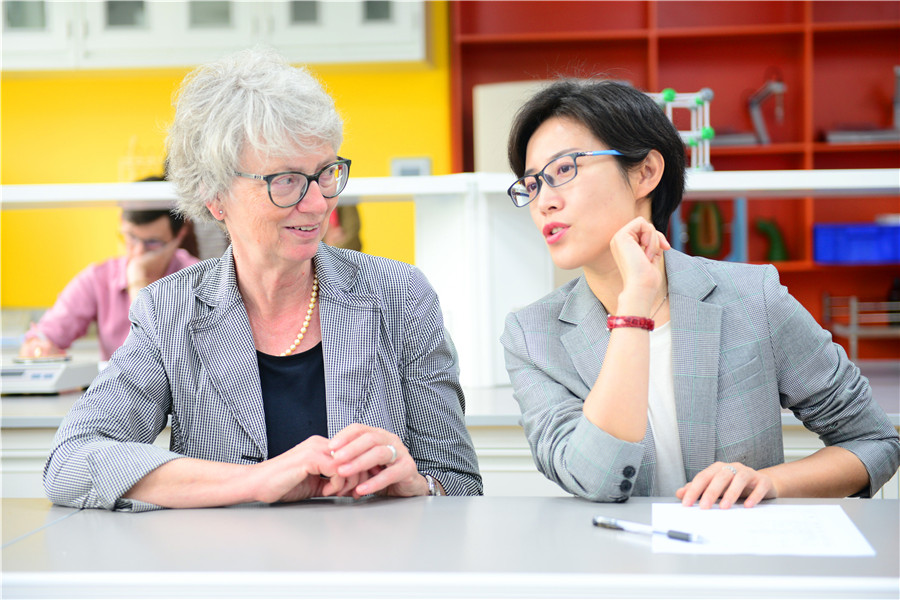
As the facilitator of this workstation, Dr. Liu Wei, principal from high school domestic division (DDHS), said that in order to improve the quality of K-12 science education, it is critical to change the way science is perceived and the way it is taught. DDHS currently is cooperating with UCLA (University of California, Los Angeles) Global Classroom to provide high school students with the opportunity to gain skills with university-level education in advance. These two programs can help to bring science to life, to show how science works, to emphasize problem solving aspects of science, and then cultivate motivated, confident, lifelong learners and innovative talents.